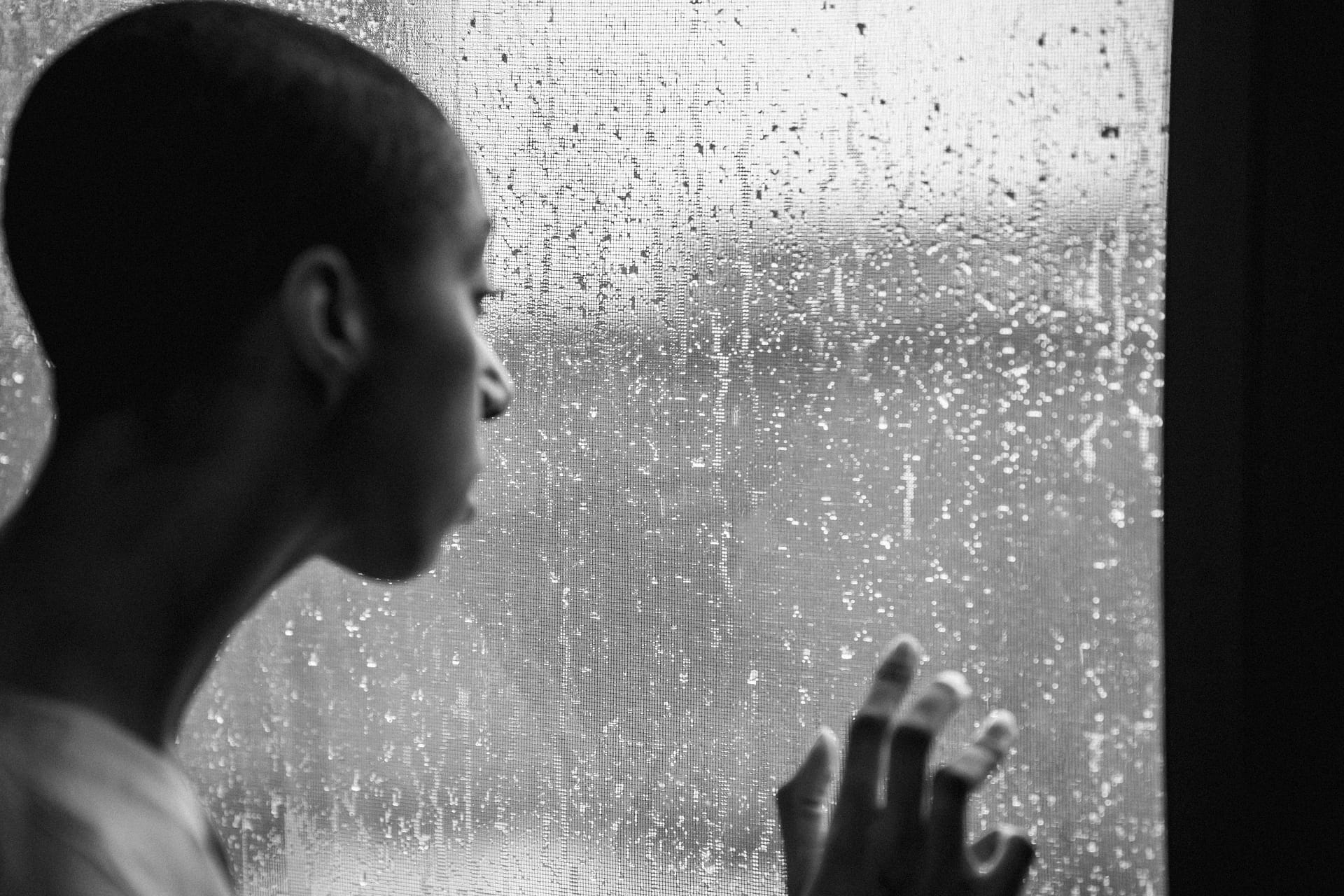
Introduction:
What is lonliness? Here is how Google defines it: “Loneliness is the state of distress or discomfort that results when one perceives a gap between one’s desires for social connection and actual experiences of it. Even some people who are surrounded by others throughout the day—or are in a long-lasting marriage—still experience a deep and pervasive loneliness”.
In the digital world we live in today, many people find themselves spending more time alone than ever before. While solitude can offer moments of reflection and personal growth, constant and prolonged isolation can have serious negative consequences on various aspects of an individual’s life. Understanding these consequences is crucial for maintaining a balanced and healthy lifestyle. In this blog post, we’ll explore the mental, physical, emotional, and social repercussions of constantly being alone and why it’s essential to nurture meaningful connections with others.

Mental Health Issues
Depression and Anxiety Prolonged solitude can lead to feelings of loneliness, which are strongly associated with depression and anxiety. The lack of social interaction can exacerbate these feelings, making it difficult for individuals to find joy or motivation in daily activities.
Increased Stress Levels Being alone for extended periods can increase stress levels. Social interactions often help individuals manage stress by providing support, perspective, and distraction from personal problems.
Cognitive Decline Social isolation has been linked to cognitive decline, including memory loss and decreased cognitive function. Engaging with others helps keep the brain active and can delay or mitigate the effects of aging on cognitive health.
Physical Health Problems
Weakened Immune System Loneliness and social isolation can negatively impact the immune system, making individuals more susceptible to illnesses and infections.
Increased Risk of Chronic Diseases Studies have shown that loneliness is associated with an increased risk of chronic diseases such as heart disease, hypertension, and diabetes. The stress and lack of support that come with being alone can contribute to these health issues.
Poor Sleep Quality Individuals who are constantly alone often experience poor sleep quality. Loneliness can lead to insomnia and other sleep disturbances, which in turn affect overall health and well-being.
Emotional and Behavioral Consequences
Reduced Coping Mechanisms Without social support, individuals may struggle to cope with life’s challenges. Friends and family often provide emotional support, advice, and practical help during difficult times.
Decreased Self-Esteem Prolonged solitude can lead to feelings of worthlessness and low self-esteem. Social interactions help reinforce self-worth and provide a sense of belonging.
Risk of Substance Abuse To cope with feelings of loneliness and depression, some individuals may turn to substance abuse, including alcohol and drugs, which can lead to addiction and further health problems.
Social Consequences
Deterioration of Social Skills Lack of regular social interaction can lead to a deterioration of social skills. Individuals may become awkward or anxious in social situations, making it even harder to connect with others.
Isolation from Community Being constantly alone can result in isolation from the community, leading to a lack of social support networks. This can be particularly problematic in times of need, such as during a personal crisis or health emergency.
Negative Impact on Work and Education Social skills are essential for success in both professional and educational settings. Constant solitude can affect one’s ability to work effectively in a team, communicate ideas, and collaborate with others, potentially hindering career and academic progress.
Emotional Well-being
Lack of Joy and Fulfillment Social interactions often bring joy and a sense of fulfillment. Constant solitude can lead to a lack of these positive emotions, resulting in a dull and unfulfilling life.
Increased Feelings of Loneliness Paradoxically, being alone can increase feelings of loneliness. The absence of meaningful connections can create a cycle where loneliness leads to more isolation, which in turn leads to deeper loneliness.
Conclusion
While solitude can be beneficial in moderation, providing time for reflection and personal growth. Constant and prolonged isolation has significant negative consequences. It is important for individuals to maintain a balance, seeking social interactions and building supportive relationships to mitigate these negative effects. Recognizing the importance of social connections can help ensure a healthier, happier, and more fulfilling life.
The Stages of Depression and How to Overcome It
Afterword:
Please allow me to introduce myself. My name is Steve Fitz and I’m a specialized Life Coach, specializing in relationship problems and depression. If you or anyone you know needs help with any issues regarding depression or relationships please get in touch. My contact details can be found on my face book page. Sessions are normally carried out through a Zoom call. No matter where you are in the world, we can still connect.
Vitamin D3 4000 iu & Vitamin K2 MK7 100μg - 1 Year Supply, 365 Easy-Swallow Vitamin D3 K2 Tablets, 1-A-Day High Strength Vegetarian D3 and K2 Vitamin Supplements, UK Made Vitamin D Tablets
£9.99 (as of August 8, 2024 04:38 GMT +00:00 - More infoProduct prices and availability are accurate as of the date/time indicated and are subject to change. Any price and availability information displayed on [relevant Amazon Site(s), as applicable] at the time of purchase will apply to the purchase of this product.)Vitamin D 4,000 IU Softgels, Maximum Strength Vitamin D3 Supplement, 365 Easy to Swallow Tablets - Full Year Supply
£8.99 (as of August 8, 2024 04:38 GMT +00:00 - More infoProduct prices and availability are accurate as of the date/time indicated and are subject to change. Any price and availability information displayed on [relevant Amazon Site(s), as applicable] at the time of purchase will apply to the purchase of this product.)Vitamin D3 4000 IU - 400 High Strength Vitamin D Tablets (1+ Year Supply) - Vegetarian - Immune System Booster - Gluten Free - Vitamin D Supplements - Made in The UK
£7.63 (as of August 8, 2024 04:38 GMT +00:00 - More infoProduct prices and availability are accurate as of the date/time indicated and are subject to change. Any price and availability information displayed on [relevant Amazon Site(s), as applicable] at the time of purchase will apply to the purchase of this product.)Natures Aid Vitamin D3 Mini Drops for Infants and Children, Sugar Free, 50ml
£6.99 (as of August 8, 2024 04:38 GMT +00:00 - More infoProduct prices and availability are accurate as of the date/time indicated and are subject to change. Any price and availability information displayed on [relevant Amazon Site(s), as applicable] at the time of purchase will apply to the purchase of this product.)Bio-Kult Everyday Multi-Strain Formulation Probiotics for Digestive System, 60 Capsules (Pack of 1)
£13.15 (as of August 8, 2024 04:38 GMT +00:00 - More infoProduct prices and availability are accurate as of the date/time indicated and are subject to change. Any price and availability information displayed on [relevant Amazon Site(s), as applicable] at the time of purchase will apply to the purchase of this product.)Magnesium Glycinate 4-in-1 Complex 2000mg - 449mg Elemental Magnesium High Strength Magnesium Supplements - Magnesium Bisglycinate,Citrate, Malate, Oxide - 120 Capsules - Vegan UK Made by New Leaf
£12.94 (as of August 8, 2024 04:38 GMT +00:00 - More infoProduct prices and availability are accurate as of the date/time indicated and are subject to change. Any price and availability information displayed on [relevant Amazon Site(s), as applicable] at the time of purchase will apply to the purchase of this product.)Ashwagandha KSM 66-365 (6 Months Supply) 1200mg Vegan Tablets Pure High Strength Ashwagandha Root Extract - Ashwagandha KSM Tablets Supplement (not Ashwagandha Capsules) Non-GMO & UK Made
£9.87 (as of August 8, 2024 04:38 GMT +00:00 - More infoProduct prices and availability are accurate as of the date/time indicated and are subject to change. Any price and availability information displayed on [relevant Amazon Site(s), as applicable] at the time of purchase will apply to the purchase of this product.)Vitabiotics Ultra Vitamin D Tablets 1000IU Optimum Level - 96 Tablets
£3.99 (as of August 8, 2024 04:38 GMT +00:00 - More infoProduct prices and availability are accurate as of the date/time indicated and are subject to change. Any price and availability information displayed on [relevant Amazon Site(s), as applicable] at the time of purchase will apply to the purchase of this product.)Free Soul Greens - 21 Advanced Greens, Superfoods, and Adaptogens Including KSM-66® Ashwagandha, Vegan & Gluten-Free, Advanced Natural Formula, UK Made, 30 Servings (Mango)
£29.99 (as of August 8, 2024 04:38 GMT +00:00 - More infoProduct prices and availability are accurate as of the date/time indicated and are subject to change. Any price and availability information displayed on [relevant Amazon Site(s), as applicable] at the time of purchase will apply to the purchase of this product.)Vitabiotics Ultra Magnesium Tablets
£5.40 (as of August 8, 2024 04:38 GMT +00:00 - More infoProduct prices and availability are accurate as of the date/time indicated and are subject to change. Any price and availability information displayed on [relevant Amazon Site(s), as applicable] at the time of purchase will apply to the purchase of this product.)The Hairy Bikers Eat to Beat Type 2 Diabetes: 80 delicious & filling recipes to get your health back on track
£8.99 (as of August 8, 2024 04:38 GMT +00:00 - More infoProduct prices and availability are accurate as of the date/time indicated and are subject to change. Any price and availability information displayed on [relevant Amazon Site(s), as applicable] at the time of purchase will apply to the purchase of this product.)Atomic Habits: Tiny Changes, Remarkable Results
£11.37 (as of August 8, 2024 04:38 GMT +00:00 - More infoProduct prices and availability are accurate as of the date/time indicated and are subject to change. Any price and availability information displayed on [relevant Amazon Site(s), as applicable] at the time of purchase will apply to the purchase of this product.)The Psychology of Money: Timeless lessons on wealth, greed, and happiness
£10.97 (as of August 8, 2024 04:38 GMT +00:00 - More infoProduct prices and availability are accurate as of the date/time indicated and are subject to change. Any price and availability information displayed on [relevant Amazon Site(s), as applicable] at the time of purchase will apply to the purchase of this product.)A Glasgow Kiss: the hilarious, laugh-out-loud bestselling romcom about modern dating that everyone's talking about!
£0.99 (as of August 8, 2024 04:38 GMT +00:00 - More infoProduct prices and availability are accurate as of the date/time indicated and are subject to change. Any price and availability information displayed on [relevant Amazon Site(s), as applicable] at the time of purchase will apply to the purchase of this product.)12 Rules for Life: An Antidote to Chaos
£14.87 (as of August 8, 2024 04:38 GMT +00:00 - More infoProduct prices and availability are accurate as of the date/time indicated and are subject to change. Any price and availability information displayed on [relevant Amazon Site(s), as applicable] at the time of purchase will apply to the purchase of this product.)Clean & Green: 101 Hints and Tips for a More Eco-Friendly Home
£9.77 (as of August 8, 2024 04:38 GMT +00:00 - More infoProduct prices and availability are accurate as of the date/time indicated and are subject to change. Any price and availability information displayed on [relevant Amazon Site(s), as applicable] at the time of purchase will apply to the purchase of this product.)The 48 Laws Of Power: Robert Greene (The Modern Machiavellian Robert Greene)
£14.93 (as of August 8, 2024 04:38 GMT +00:00 - More infoProduct prices and availability are accurate as of the date/time indicated and are subject to change. Any price and availability information displayed on [relevant Amazon Site(s), as applicable] at the time of purchase will apply to the purchase of this product.)The Majorly Awkward BFF Dramas of Lottie Brooks (Lottie Brooks, 6)
£11.49 (as of August 8, 2024 04:38 GMT +00:00 - More infoProduct prices and availability are accurate as of the date/time indicated and are subject to change. Any price and availability information displayed on [relevant Amazon Site(s), as applicable] at the time of purchase will apply to the purchase of this product.)The Subtle Art of Not Giving a F*ck: A Counterintuitive Approach to Living a Good Life
£11.37 (as of August 8, 2024 04:38 GMT +00:00 - More infoProduct prices and availability are accurate as of the date/time indicated and are subject to change. Any price and availability information displayed on [relevant Amazon Site(s), as applicable] at the time of purchase will apply to the purchase of this product.)Manifest
£6.99 (as of August 8, 2024 04:38 GMT +00:00 - More infoProduct prices and availability are accurate as of the date/time indicated and are subject to change. Any price and availability information displayed on [relevant Amazon Site(s), as applicable] at the time of purchase will apply to the purchase of this product.)Please consider subscribing to our monthly newsletter





















Pingback: The Stages of Depression and How to Overcome It - My Daily Inspiration